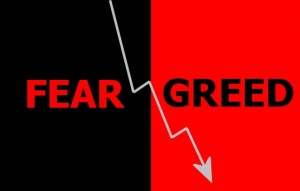Compare to world market Indian market is new and developing but there are many market’s which are there from centuries to centuries and developed markets. And there are many GURU’s who are guiding about market movements with their studies and knowledge.
but as compare to current market conditions, markets are more dynamic that previous one and people using high technologies in current world compare to old time. all this things lead us to think that are this GURU’s were right about market or what they said is right in current situation.
1. “SELL IN MAY AND GOAWAY”
This favourite saying dates back to the period when London stock brokers went on long holidays during the summer months. The full saying is, “Sell in May and go away, stay away till St Leger day”, referring to the last race in the British horse racing season which is around mid-September. With most brokers out of the trading ring, the trading volume was low and returns were muted.
Therefore, it was thought wise to sell off your stock holdings before you proceeded for a holiday and start with a clean slate on your return in October.
but just compare it in current year’s month of may DOW JONES already moved up almost 3-4% up and if you sell of all your holding and when you come back from vacation what will be your situation.
Does it hold for Indian markets?
If you look at the average daily returns of every month in the past 21 years, May generated muted returns during 1992-2002 as well as 2003-2013. However, the returns in May were negative only in 12 of the past 21 years. This midway figure doesn’t suggest that this saying holds true for the Indian markets. Even in those 12 years, only in two years the negative returns in May correlates with a negative return in June.
So, the sell in May theory is quite insignificant in the Indian context. However, the market is rallying right now and we won’t be surprised if this year’s peak happens in May.
JANUARY MONTHS IMPORTANCE
this term is actually come into picture from US stock market, generally in US financial year start from JAN to DEC so at the year end people sell off and starting of new year they again come into buying. also in US in month of December its a festival time of CHRISTMAS so they is holiday season is going on, and many people are avoiding trading and they are busy with festival.
what is effect on indian market
The Indian financial year is from April to March, so there is no rush to sell in December. However another version of the ‘year-end effect’ is witnessed here. After negative returns in October due to the Mark Twain effect, the market makes a significant recovery during November and December. This turnaround is clearly visible in the average daily returns of the months since 1992.
In the past 21 years, November generated the highest monthly returns six times. The ‘year-end effect’ has become more pronounced in recent years. It could be that after a strong rally in November-December, investors have booked profits, leading to negative returns in January.
Pre-Budget really
in budget generally government announce new financial and growth planing so before budget people use to buy stock which can be affected due to budget and sell off after budget.
What happen in india during budget time?
This phenomenon is specific to India and is very evident in the way the markets react to the budget. We looked at the returns from the markets before and after the exact budget dates during the past 20 years. The pre-budget rally and post-budget crash are clearly visible. You may wonder why the pre-budget rally did not hold good for the 1-week period. This is because some market players book profits well in advance before the budget is announced.
Importance to Friday as it was last day of weekly closing
Also known as the weekend effect, this suggests that returns on Mondays will be more volatile than on other days. This is because Monday trading has to discount more information that comes out during Saturday and Sunday.
This information may be company-specific events (declaration of results on weekends to reduce its impact on stock price) or macro events (political developments or a spike in crude price due to geo political tensions). Since they don’t want to ruin their weekends, most traders square off their positions on Friday itself and, therefore, the returns on Fridays are generally muted.
because Indian investors value their weekends just as much as their American counterparts. Most traders square off their positions on Thursdays and Fridays, and very few high-risk traders carry their positions to Mondays. Data of the past 20 years ratifies this hypothesis. For example, the average daily returns generated on Fridays was only 0.3% compared to the average 0.67% returns generated during the other four days.
